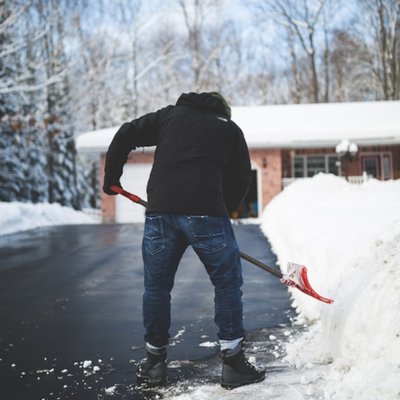paddle(
pah
-
duhl
)A noun is a word referring to a person, animal, place, thing, feeling, or idea (e.g., man, dog, house).
b. la pala (F)
(f) means that a noun is feminine. Spanish nouns have a gender, which is either feminine (like la mujer or la luna) or masculine (like el hombre or el sol).
The kayaker dropped his paddle into the water, causing him to lose the race.El remador dejó caer su pala al agua, haciendo que perdiera la carrera.
c. el zagual (M)
(m) means that a noun is masculine. Spanish nouns have a gender, which is either feminine (like la mujer or la luna) or masculine (like el hombre or el sol).
If everybody grabs a paddle and starts rowing, we may make it through the storm.Si todos cogen un zagual y empiezan a remar, puede que salgamos de la tormenta.
2. (mechanism)
a. la rueda de paletas (F)
(f) means that a noun is feminine. Spanish nouns have a gender, which is either feminine (like la mujer or la luna) or masculine (like el hombre or el sol).
The paddle on our boat broke, so we had to work twice as hard to get across the lake.Se nos rompió la rueda de paletas de nuestro bote, así que tuvimos que esforzarnos el doble para atravesar el lago.
a. la pala (F) (ping-pong)
(f) means that a noun is feminine. Spanish nouns have a gender, which is either feminine (like la mujer or la luna) or masculine (like el hombre or el sol).
The ping-pong player angrily broke his paddle over the table when he lost the match.El jugador de ping-pong rompió su pala con enojo sobre la mesa cuando perdió la partida.
b. la paleta (F) (ping-pong)
(f) means that a noun is feminine. Spanish nouns have a gender, which is either feminine (like la mujer or la luna) or masculine (like el hombre or el sol).
When I play table tennis, I prefer to use a paddle with a straight grip.Cuando juego tenis de mesa, prefiero usar una paleta con puño recto.
c. la raqueta (F) (tennis)
(f) means that a noun is feminine. Spanish nouns have a gender, which is either feminine (like la mujer or la luna) or masculine (like el hombre or el sol).
You might get more control over your stroke if you switch to a bamboo paddle instead of a fiberglass one.Quizás controles más tu golpe si cambias tu raqueta de fibra de vidrio por una de bambú.
4. (culinary)
a. la paleta (F)
(f) means that a noun is feminine. Spanish nouns have a gender, which is either feminine (like la mujer or la luna) or masculine (like el hombre or el sol).
Using a paddle will make the task of removing batter from the sides of the bowl much easier.Con una paleta será más fácil quitar la mezcla para rebozar de los lados del bol.
An intransitive verb is one that does not require a direct object (e.g., The man sneezed.).
a. remar
We spent the entire afternoon lazily paddling in our canoe across the pond behind our house.Pasamos toda la tarde remando perezosamente en nuestra canoa por el estanque detrás de nuestra casa.
a. chapotear
The duck's webbed feet help it to paddle through water with much strength.Las patas palmeadas del pato le ayudan a chapotear por el agua con mucha fuerza.
b. nadar
It is amazing that you don't have to teach dogs how to swim and they instinctively paddle once they are in the water.Es asombroso que no haya que enseñar a los perros a nadar y que naden por instinto cuando están en el agua.
A transitive verb is a verb that requires a direct object (e.g., I bought a book.).
a. remar
Let's paddle the canoe ashore so we can fix this hole before it gets worse.Rememos la canoa hacia tierra para poder arreglar este agujero antes de que empeore.
b. llevar
The rescue boat paddled the shipwrecked sailors to the harbor.El bote de rescate llevó a los marineros naufragados al puerto.
8. (colloquial) (to beat) (United States)
A word or phrase that is commonly used in conversational speech (e.g., skinny, grandma).
Regionalism used in the United States
a. zurrar (colloquial)
A word or phrase that is commonly used in conversational speech (e.g., skinny, grandma).
The frustrated mother paddled her insolent child in the middle of the supermarket.La madre frustrada zurró al niño insolente en medio del supermercado.
An adjective is a word that describes a noun (e.g., the big dog).
9. (propelling)
a. de paleta
Mi brother rented a paddle boat to take out on the lake with his fiancée for a romantic date.Mi hermano alquiló un bote de paleta para una cita romántica con su novia en el lago.
Examples
Phrases
Machine Translators
Translate paddle using machine translators
Conjugations
Other Dictionaries
Explore the meaning of paddle in our family of products.
Random Word
Roll the dice and learn a new word now!
Want to Learn Spanish?
Spanish learning for everyone. For free.























